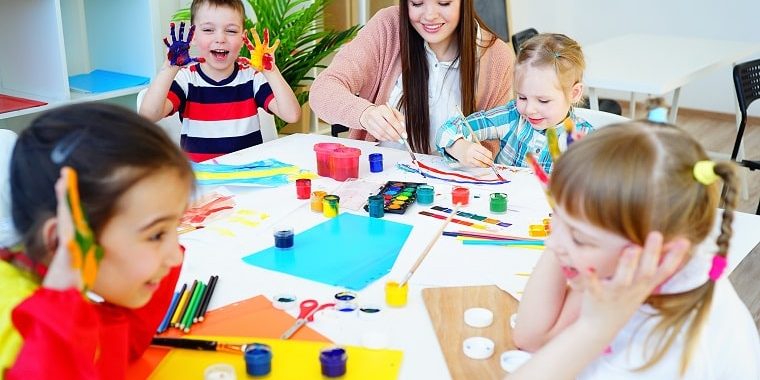
The Importance of Play-Based Learning in Early Childhood Education
November 28, 2023
In the bustling world of early childhood education, where foundational skills are laid, there is a growing acknowledgment of the profound impact of play-based learning. Play is not just a pastime for children; it is a powerful educational tool that fosters holistic development. In this article, we delve into the importance of play-based learning and its transformative effects on the early years of education.
Natural Learning Environment:
Play is the language of children, and play-based learning in preschool and Montessori creates a natural and engaging environment for them to explore, experiment, and make sense of the world around them. It mimics the way children naturally learn, making education an enjoyable and intuitive experience.
Cognitive Development:
Play-based learning stimulates cognitive development by encouraging problem-solving, critical thinking, and creativity. Through activities such as building blocks, puzzles, and imaginative play, children develop essential cognitive skills that lay the foundation for future academic success.
Social Skills and Emotional Intelligence:
Playing with peers promotes the development of crucial social skills. Children learn to share, cooperate, negotiate, and resolve conflicts, fostering the building blocks of healthy relationships. Play-based learning also enhances emotional intelligence by allowing children to express and understand their emotions in a supportive environment.
Language Development:
Play is a rich context for language development. Whether engaging in pretend play or collaborative activities, children naturally use and expand their vocabulary. Communication skills are honed as they articulate thoughts, negotiate roles, and express their ideas within the context of play.
Motor Skills:
Physical play, such as climbing, running, and manipulating objects, contributes to the development of both fine and gross motor skills. These skills are essential for tasks such as writing, dressing, and overall coordination, laying the groundwork for future academic and life activities.
Creativity and Imagination:
Play-based learning provides a fertile ground for creativity and imagination to flourish. Whether it’s building a fort, creating a make-believe world, or engaging in artistic endeavors, children develop the ability to think outside the box, fostering a lifelong appreciation for creativity.
Love for Learning:
When learning is approached through play, it instills a natural curiosity and love for learning. Children view the learning process as exciting and enjoyable, setting the stage for a positive attitude toward education throughout their academic journey.
Individualized Learning:
Play-based learning recognizes that each child is unique. Activities can be tailored to individual interests, strengths, and learning styles. This individualization ensures that children progress at their own pace, building confidence and a positive self-concept.
Resilience and Problem-Solving:
Play inherently involves challenges and obstacles, allowing children to develop resilience and problem-solving skills. As they encounter setbacks during play, they learn to persist, adapt, and find solutions—a crucial mindset for navigating life’s challenges.
Parental Engagement:
Play-based learning often extends beyond the classroom, providing opportunities for parents to engage in their child’s education. Through play, parents can actively participate in their child’s learning journey, strengthening the parent-child bond and creating a supportive educational ecosystem.
Conclusion:
In the early years of education, play is not just a break from learning; it is the essence of learning itself. Play-based learning in early childhood education is a dynamic and effective approach that nurtures the whole child—cognitively, socially, emotionally, and physically. By recognizing the importance of play, educators and parents alike can lay the groundwork for a lifetime of curiosity, creativity, and a love for learning.


